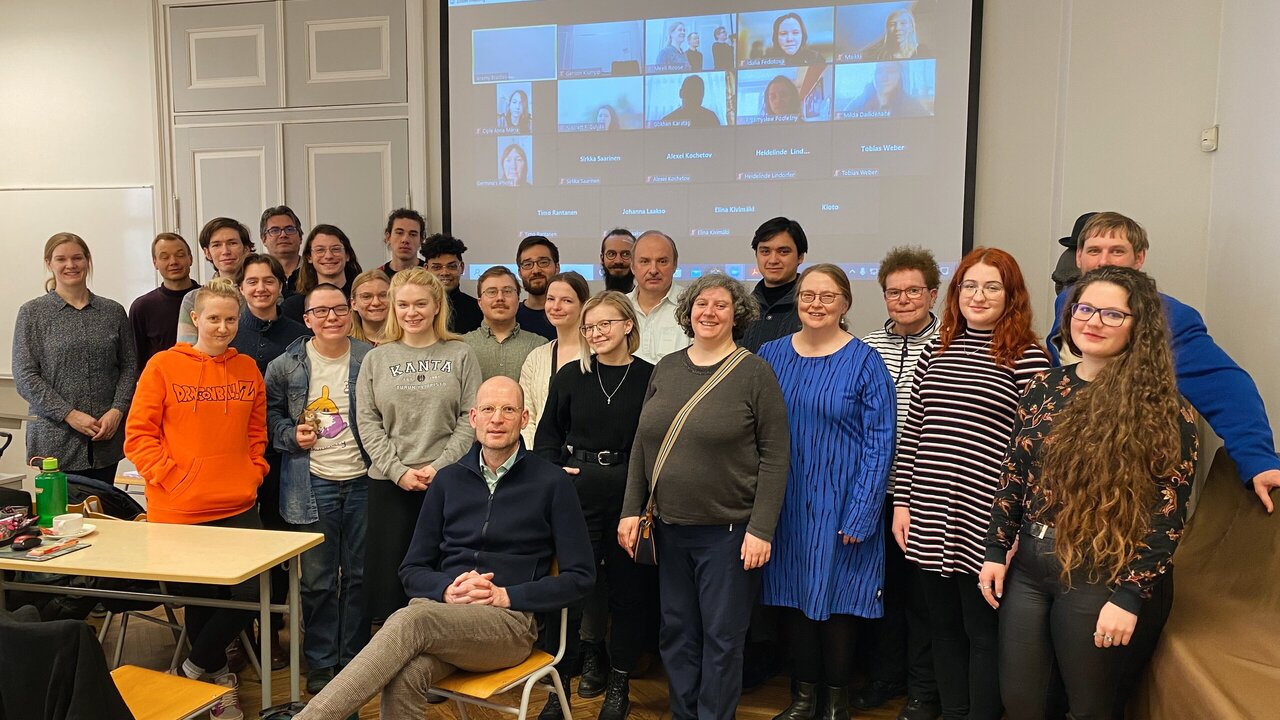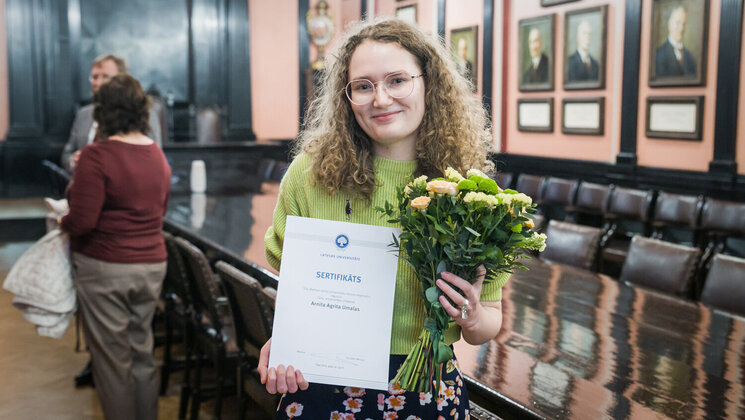-
Faculty of Arts and HumanitiesJakobi 2, r 116-121 51005 Tartu linn, Tartu linn, Tartumaa ESTJakobi 2 51005 Tartu linn, Tartu linn, Tartumaa ESTJakobi 2, IV korrus 51005 Tartu linn, Tartu linn, Tartumaa ESTJakobi 2, III korrus, ruumid 302-337 51005 Tartu linn, Tartu linn, Tartumaa ESTÜlikooli 16 51003 Tartu linn, Tartu linn, Tartumaa ESTLossi 3 51003 Tartu linn, Tartu linn, Tartumaa ESTÜlikooli 18 50090 Tartu linn, Tartu linn, Tartumaa ESTPosti 1 71004 Viljandi linn, Viljandimaa ESTJakobi 2 51005 Tartu linn, Tartu linn, Tartumaa ESTJakobi 2 51005 Tartu linn, Tartu linn, Tartumaa ESTFaculty of Social SciencesLossi 36 51003 Tartu linn, Tartu linn, Tartumaa ESTJakobi 5 51005 Tartu linn, Tartu linn, Tartumaa ESTLossi 36, ruum 301 51003 Tartu linn, Tartu linn, Tartumaa ESTNarva mnt 18 51009 Tartu linn, Tartu linn, Tartumaa ESTNäituse 2 50409 Tartu linn, Tartu linn, Tartumaa ESTNäituse 20 - 324 50409 Tartu linn, Tartu linn, Tartumaa ESTLossi 36 51003 Tartu linn, Tartu linn, Tartumaa ESTRaekoja plats 2 20307 Narva linn, Ida-Virumaa ESTRingi 35 80012 Pärnu linn, Pärnu linn, Pärnumaa ESTLossi 36 51003 Tartu linn, Tartu linn, Tartumaa ESTLossi 36 51003 Tartu linn, Tartu linn, Tartumaa ESTFaculty of MedicineRavila 19 50411 Tartu linn, Tartu linn, Tartumaa ESTBiomeedikum, Ravila 19 50411 Tartu linn, Tartu linn, Tartumaa ESTNooruse 1 50411 Tartu linn, Tartu linn, Tartumaa ESTL. Puusepa 1a 50406 Tartu linn, Tartu linn, Tartumaa ESTL. Puusepa 8 50406 Tartu linn, Tartu linn, Tartumaa ESTRavila 19 50411 Tartu linn, Tartu linn, Tartumaa ESTUjula 4 51008 Tartu linn, Tartu linn, Tartumaa ESTRavila 50411 Tartu linn, Tartu linn, Tartumaa ESTRavila 19 50411 Tartu linn, Tartu linn, Tartumaa ESTFaculty of Science and TechnologyVanemuise 46 - 208 51003 Tartu linn, Tartu linn, Tartumaa ESTNarva mnt 18 51009 Tartu linn, Tartu linn, Tartumaa ESTRiia 23b/2 51010 Tartu linn, Tartu linn, Tartumaa ESTRavila 14a 50411 Tartu linn, Tartu linn, Tartumaa ESTNarva mnt 18 51009 Tartu linn, Tartu linn, Tartumaa ESTRiia 23, 23b - 134 51010 Tartu linn, Tartu linn, Tartumaa ESTObservatooriumi 1 61602 Tõravere alevik, Nõo vald, Tartumaa ESTNooruse 1 50411 Tartu linn, Tartu linn, Tartumaa ESTJ. Liivi tn 2 50409 Tartu linn, Tartu linn, Tartumaa ESTVanemuise 46 51003 Tartu linn, Tartu linn, Tartumaa ESTVanemuise 46 51003 Tartu linn, Tartu linn, Tartumaa ESTArea of Academic SecretaryLossi 3 51003 Tartu linn, Tartu linn, Tartumaa ESTUppsala 6, Lossi 36 51003 Tartu linn, Tartu linn, Tartumaa ESTArea of Head of FinanceÜlikooli 17 51005 Tartu linn, Tartu linn, Tartumaa ESTArea of Director of AdministrationÜlikooli 18A (III korrus) 51005 Tartu linn, Tartu linn, Tartumaa ESTÜlikooli 18, ruumid 102, 104, 209, 210 50090 Tartu linn, Tartu linn, Tartumaa ESTArea of RectorArea of Vice Rector for Academic AffairsUppsala 10 51003 Tartu linn, Tartu linn, Tartumaa ESTÜlikooli 18b 51005 Tartu linn, Tartu linn, Tartumaa ESTArea of Vice Rector for ResearchW. Struve 1 50091 Tartu linn, Tartu linn, Tartumaa ESTArea of Vice Rector for DevelopmentNarva mnt 18 51009 Tartu linn, Tartu linn, Tartumaa ESTVanemuise 46 51003 Tartu linn, Tartu linn, Tartumaa ESTLossi 25 51003 Tartu linn, Tartu linn, Tartumaa EST
New database of Uralic languages was presented in Spring School of Finno-Ugric Studies

The 2022 Spring School of Finno-Ugric Studies is taking place this week, from 4 to 9 April at the University of Tartu. The Spring School brings together students and researchers of Finno-Ugric Studies from several universities in Europe and beyond. The event is the tenth in the series which began as winter schools, first held in 2013. This year’s winter school has turned into Spring School due to COVID.
An important part of all the winter schools has been a course in one Uralic language. In previous years, Moksha and Nganasan have been taught. This year, participants have the rare opportunity to learn Old Komi. The Old Komi course is taught by Gerson Klumpp, Professor of Finno-Ugric languages at the University of Tartu. “In this course students get acquainted with Europe’s most north-eastern literary language developed in the course of Christianization and one of the earliest literacies among the Uralic languages”, he said.
This year, the focus of lectures and workshops is on interdisciplinary collaboration and digital methods that have been developed by researchers in Turku, Tartu and Uppsala, most of whom are part of the BEDLAN research initiative. For example, Kristiina Tambets, Professor of Archaeogenetics at the University of Tartu, held the opening lecture on the genetic background of Uralic peoples. Meeli Roose ja Timo Rantanen, PhD students in Geography at Turku University introduced map making; Michael Dunn, Professor of General Linguistics, and postdoc Yingqi Jing, from Uppsala University, are running a workshop on digital methods.
The digital methods workshop is based on a large database of Uralic languages, Uralic Areal Typology Online, or UraTyp (accessible here https://uralic.clld.org/), that was published just before the Spring School. The database currently contains information on 360 features in 35 Uralic languages. The database was developed in cooperation between researchers from the Universities of Tartu, Turku and Uppsala. The coordinator of the project is Miina Norvik, researcher of Balto-Finnic languages at the University of Tartu. The idea of the database originated in collaboration with the developers of Grambank (https://glottobank.org/). Out of 360 features, 160 will be available in both databases. Many linguists have helped to gather data on Uralic languages for the database. “UraTyp will significantly raise the visibility of Uralic languages, and appearing on Grambank widens the context even further”, said Dr. Norvik.
The Spring School is sponsored by the REMODUS project (https://remodus.univie.ac.at/), funded by the Erasmus+ programme. The database development has been funded by the University of Turku, Finnish Academy, Kone Foundation and University of Tartu.
Read more similar news






